Politics and Government: Organizations and Institutions
Associazione Donne Ebree D'Italia (ADEI)
The Association of Italian Jewish Women, or ADEI, was founded in 1927 in the city of Milan, Italy, home to the second largest Jewish community in the country.

Australia: 1788 to the Present
The first Jewish women, like the first Jewish men, arrived in Australia on the very first day of European settlement in 1788. Those convict pioneers were followed by free settlers who made Jewish communal and congregational life viable and helped to develop the vast continent. Jewish women have made significant contributions to Australia's national story.
Sophie Cahn Axman

B'nai B'rith Women
Created at the beginning of the twentieth century, B’nai B’rith Women expanded its role during both World Wars. Although gender roles after World War II reverted to a more conventional structure, in the 1960s BBW shifted its efforts to reflect the antipoverty and feminist campaigns of the period.

Miriam Baratz
Miriam Baratz was a founding member of Deganyah Aleph, the first socialist Zionist farming commune in pre-state Israel. She advocated for communal childcare and education, and for a cooperative and egalitarian economic structure. The gender paradigm she helped establish at Deganyah set a precedent of egalitarianism for the entire kibbutz movement.
Lizzie Spiegel Barbe
Lizzie Spiegel Barbe, a member of a prominent Chicago family, devoted more than fifty years of her life to being a clubwoman and leader within the Chicago Jewish community. Like other “Jewish Clubwomen” of this era, Barbe was motivated to establish leadership roles for women that had previous not existed within the organized Jewish community.
Hannah Barnett-Trager
Hannah Barnett-Trager’s involvement in the literary world began when she helped found and then worked as a librarian at the Jewish Free Reading Room in London. She published her first article in 1919 and went on to write books for both children and adults. Trager’s writing discussed Jewish culture and politics, often drawing from her own experiences.
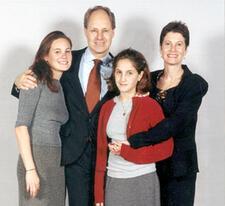
Patricia Barr
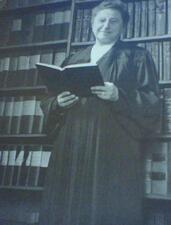
Jennie Loitman Barron
Evangelyn Barsky
One of the first two women allowed to pass the bar in Delaware, Evangelyn Barsky made a great impact on her community in her brief career.
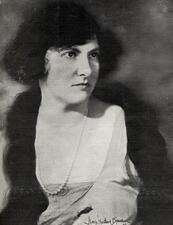
Marion Eugénie Bauer
Marion Eugenie Bauer was a modernist and experimental composer whose musical scholarship advocated for women’s voices to be heard and revived interest in female composers. As a teacher, writer, and composer, she was actively involved in many music and composition organizations, frequently as the only woman in a leadership position.
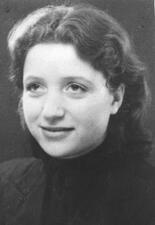
Baum Gruppe: Jewish Women
Formally created in 1938 and 1939, the Baum group was a German anti-Fascist resistance organization. Initially its work consisted of making and distributing anti-Fascist propaganda, but on May 18, 1942, the Baum group joined the effort to set fire to an anti-Soviet exhibit at a public park in Berlin. The damage was minimal and shortly thereafter, the Gestapo arrested hundreds of Jews in retaliation and twenty-two members of the Baum group were executed.
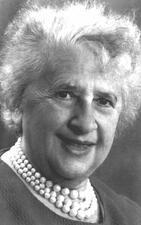
Sarah Bavly
Dutch-born Sarah Bavly was a pioneer nutritionist in the Yishuv who laid the groundwork for Israel's nutritional infrastructure and educational programming, directing Hadassah's hospital nutrition departments and school lunch programs and establishing the State's first College of Nutrition.
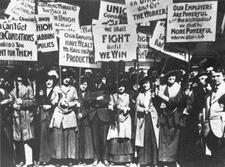
Dorothy Jacobs Bellanca
Born in Latvia before immigrating to Baltimore as a child, Dorothy Jacobs Bellanca was one of America’s most remarkable women’s labor leaders. An outstanding union organizer and a captivating speaker, Bellanca understood the problems of the working class—people of all genders, ages, and backgrounds—and sought to improve conditions for workers.

Ruth Ben Israel
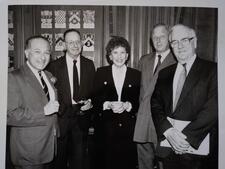
Hadassa Ben-Itto
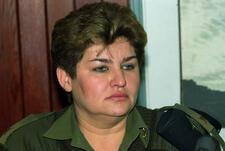
Yehudit Ben-Natan
Yehudit Ben-Natan is most known for her time as the head of the Israel Defense Forces’ Women’s Corps, where she waged a fierce campaign against the conservatism that marked everything related to the opening to women of new military occupations. She was particularly active in promoting women serving in the career army and tried to integrate women into combat units.
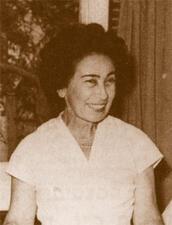
Mina Ben-Zvi
Mina Ben-Zvi was among the first women to serve in the military in Palestine, first as part of the British Auxiliary Territorial Service, then in local Zionist paramilitary organizations that eventually became the Israeli Defense Forces. She became the first commanding officer of the IDF’s Women’s Corps in 1948.
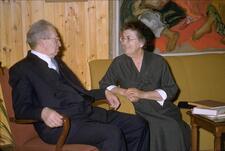
Rahel Yanait Ben-Zvi
Rahel Yanait Ben-Zvi was the second First Lady of Israel, wife to President Yizhak Ben-Zvi. Before and after Ben-Zvi’s tenure, she was active in the labor movement in Palestine and Israel and in the independence movement, as well as a prolific writer and recorder of her experiences in Erez Israel.
Rose I. Bender
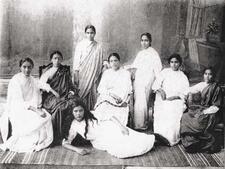
Bene Israel
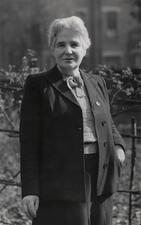
Helen Bentwich
Helen Bentwich was an active community organizer, activist, and local politician. She and her husband, Norman, aided in helping people escape Nazi persecution and split their time between Palestine and England for many years.
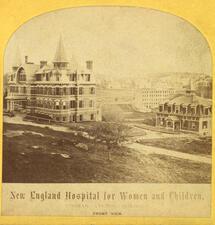
Fanny Berlin
A courageous, motivated pioneer in medicine, in the late 1800s Fanny Berlin became one of the first Jewish women to practice surgery in the United States and the respected chief surgeon of a major hospital.
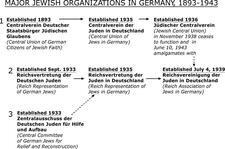
Cora Berliner
Cora Berliner was an economist and social scientist who held leadership positions in several major Jewish organizations in Germany between 1910 and 1942. These organizations included the Association of Jewish Youth Organizations in Germany, the Reich Representation of German Jews, and the League of Jewish Women.

Clementine Bern-Zernik
A lawyer by training, Vienna-born Clementine Bern-Zernik produced broadcasts for the US Office of War Information in London during the war, served as the director of a Displaced Persons Camp in post-war Germany, and spent the last 50 years of her life as a UN liaison to the New York Public Library. Throughout her life she maintained a strong Austrian identity and was a founding member of the Austrian-American Federation.


